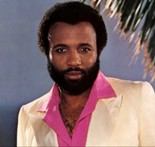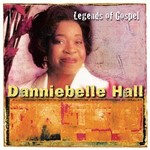
Edwin Hawkins and "Oh, Happy Day" (Continued)
The legacy of the Edwin Hawkins Singers and their new contemporary gospel sound found in " Oh Happy Day" can be summed up in the essay written by Otis Alexander:
While the national exposure clearly helped, "Oh Happy Day" began to get airplay not only on local religious radio but on secular stations as dee jays embraced this 18th-century Protestant hymn rearranged by Hawkins and Watson to appeal to a contemporary audience. The stations played the song three or four times a day in their otherwise pop and R & B rotations. With this exposure, "Oh Happy Day" became the most successful gospel hit of all time, selling more than seven million units worldwide. Its remarkable international appeal was clearly part of that success. While the song rose to No. 4 on the U.S. Pop Chart, it reached No. 1 on the German, French, and Swiss Singles Charts and No. 2 on the Canadian, United Kingdom, and Irish Singles Charts. Eventually, the choir toured throughout Europe and the United States, even appearing for five weeks at Caesars Palace in Las Vegas.
(Alexander 2021, n.p.)
The Edwin Hawkins Singers continued recording albums, mainly on Gospel/Christian labels like Birthright and Myrrh and in 1972 they were awarded a second Grammy for " Every Man Wants to Be Free," followed by a third Grammy in 1980 for the song "Wonderful."

"(He's) Wonderful" (1976) Edwin Hawkins Singers [ 00:00-00:00 ]
In 1982 the Edwin Hawkins Music and Arts Seminar was founded, and a fourth Grammy was awarded in 1983 for the song " If You Love Me." In 2007, Edwin Hawkins was inducted into the Christian Music Hall of Fame.
The sound of " Oh Happy Day " paved the way for such artists as Andrae Crouch ![]() SIDE NOTEAndrae Crouch was an American gospel singer, songwriter, arranger, record producer, and pastor who impacted both Black and White audiences. (" Take Me Back," and " Soon and Very Soon") and Danniebelle Hall
SIDE NOTEAndrae Crouch was an American gospel singer, songwriter, arranger, record producer, and pastor who impacted both Black and White audiences. (" Take Me Back," and " Soon and Very Soon") and Danniebelle Hall ![]() SIDE NOTEDanniebelle Hall was a singer, songwriter, and pianist who loved to share the Gospel of Christ through her song stylings. (" Ordinary People" and " Let Me Have a Dream"). Others continued to produce a modern contemporary gospel sound that impacted a new generation of songwriters and listeners. What followed later would be called urban contemporary gospel.
SIDE NOTEDanniebelle Hall was a singer, songwriter, and pianist who loved to share the Gospel of Christ through her song stylings. (" Ordinary People" and " Let Me Have a Dream"). Others continued to produce a modern contemporary gospel sound that impacted a new generation of songwriters and listeners. What followed later would be called urban contemporary gospel.

Andrae Crouch (1942-2015)

Danniebelle Hall (1938-2000)





